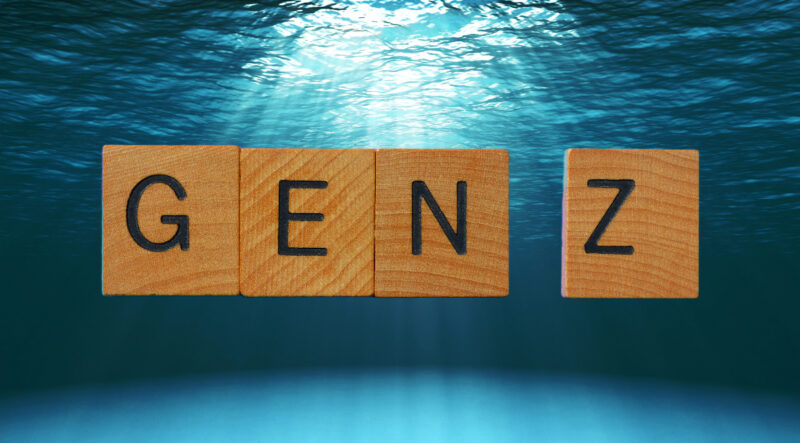Why Gen Z is a perfect fit in the fish farming industry
The ‘mess’ Gen Z is inheriting includes a financial landscape that is more a yoyo than a landscape, climate change disasters, and the lingering effects of COVID 19
Viewpoint by: Samantha Bacchus McLeod
Generation Z, or Gen Z (born between 1996 and 2010), is a generation whose identity has been shaped, and continues to be shaped, by the digital era. Born into the firmly established world of digitalisation, they are adept at navigating this arena, while being fully aware of its pitfalls.
Although Gen Z of working age are extremely-online – dating, shopping, learning, reading the news – they can spot propaganda a mile off, and they have a distrust of “influencers”. They would rather believe in their peers as they trust them to report the truth of their lived experiences.
With a higher percentage of members of Gen Z in the aquaculture industry, the wild allegations against farm raised fish in BC would have less traction, as this age group seems to have little-to-no patience for armchair warriors, and the utmost of trust in their peers, and in their own ability to decipher truth from fiction.
Gen Z members of working age are generally happier with their jobs, as much as 84 percent will stay and be loyal if treated well with fair pay, and if the company lives up to the truths they are promoting.
In one McKinsey study, 73 percent of Gen Z reported trying to purchase from companies they consider ethical, and nine out of ten believe that companies have a responsibility to address environmental and social issues. However, they can tell when a brand is just paying lip service and isn’t backing up diversity or sustainability claims with real change.
The fish farming sector is one of the better paying industries in BC, with great benefits. Overall and worldwide, fish farming is a flourishing industry that is rapidly expanding, with jobs and careers for just about anyone, be it managers, workers, tech, science, environment or sales, hatchery technicians, or fulltime farmers and more. This industry provides jobs to anyone of any pedigree or potential who is seeking a secure career and who believes in farming the oceans in a sustainable way. Even better, if the potential candidate believes in conservation of wild salmon and feeding the planet at the same time, then Gen Z should consider this the place to be.
Gen Z are cognizant of what is real and what is not when hopping from app to app as they are experts in all things online. That means they are also very tech savvy and they embrace technology as part of the solution to fixing the “mess they are inheriting”.
The aquaculture industry while doing great is also constantly on the lookout to do better. The fish farming industry is always on the cutting edge of technology, whether it is investing in equipment to monitor fish and fish health and regulating feed, or investing in science and tech to create the most nutritious and environmentally sound fish food.
The industry is also trying to fix a ‘mess’, may it be through investing in research and development to slow down climate change, and/or investing in new ways to preserve the environment for future generations.
The ‘mess’ Generation Z is inheriting includes a financial landscape that is more a yoyo than a landscape, and thus they are very focussed on saving for retirement. In fact 94 percent of this age group surveyed reported they are saving for retirement already.
In my opinion, for the Gen Z population that haven’t discovered the industry yet…they would love working in the fish farming industry because it pays well, it treats people well, it builds real relationships with coastal communities. It is tech savvy and it is environmentally conscious. it is sustainable in the sense that it is a much-needed industry that will be around for as long as humans need to eat. It is an industry that promotes saving wild salmon. It is a farming industry that leaves the smallest carbon footprint. It is an industry that cares for people and planet, and of course profit.
I would call that a match made for the times we live in. By the way, there are many young people already making waves in the industry, check out these peer-review TikTok videos of the Young Salmon Farmers of BC

